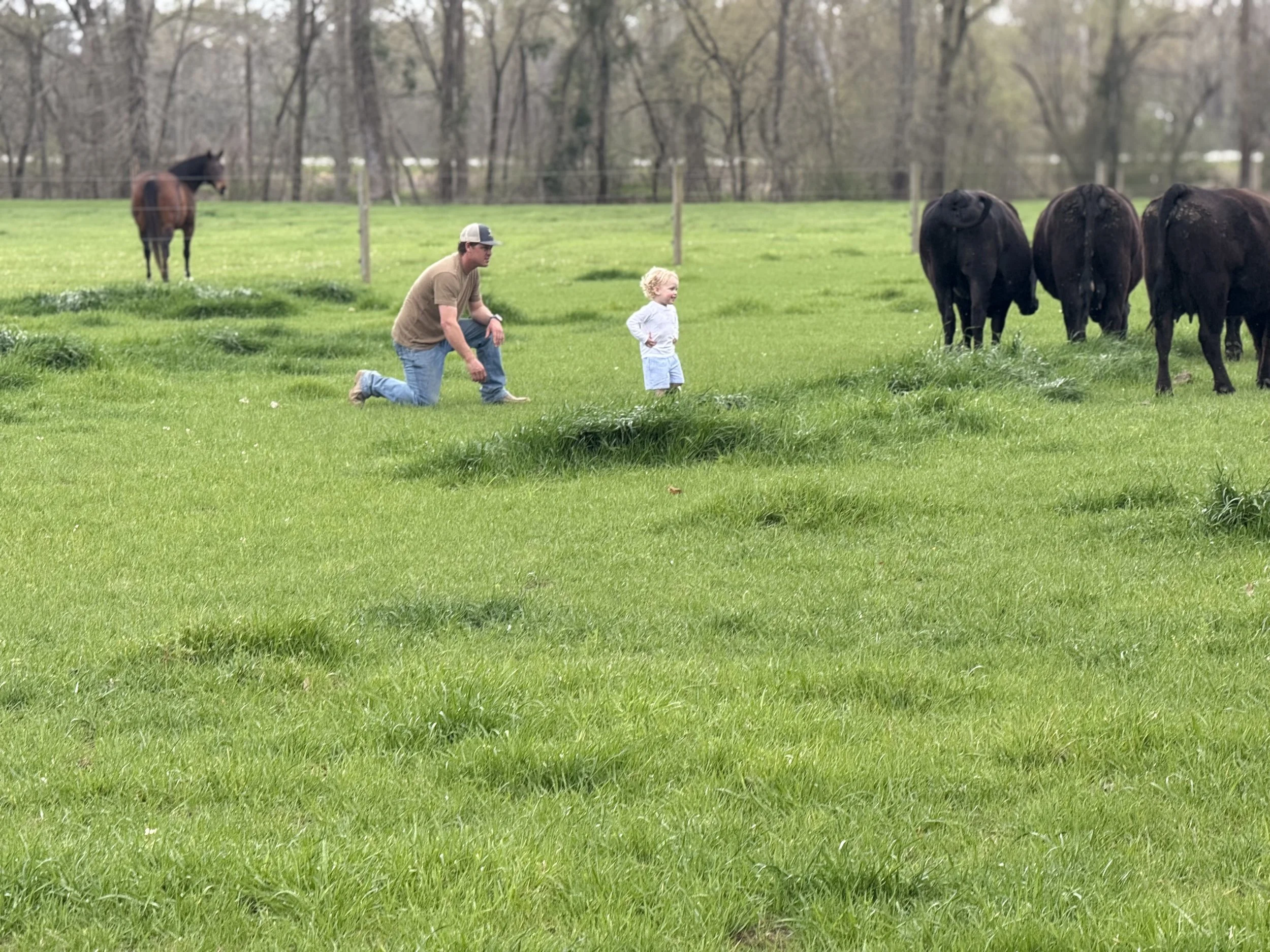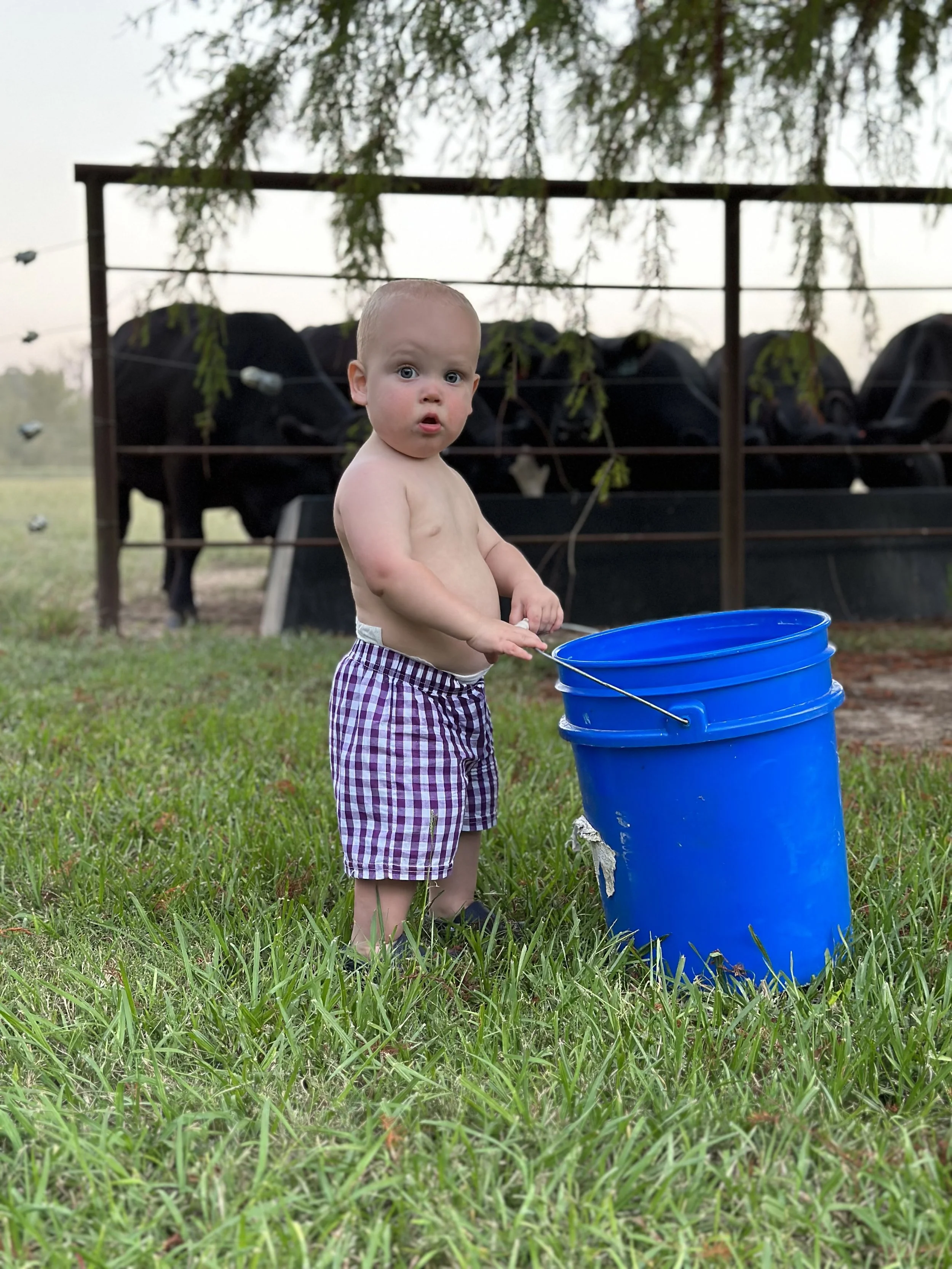Why Louisiana Ranchers Deserve a Seat at the Table
By Kristen Oaks-White
Louisiana Farm Bureau News
Growing up on a poultry and cattle farm in Calhoun, Louisiana, I learned early that when you care for animals, you care for more than a product — you care for a way of life. Today, that way of life is facing new challenges, and not all of them come from droughts, prices, or hurricanes. Some come from policy decisions made far away from our pastures.
Recently, there’s been a lot of talk about bringing more imported beef into the U.S., including from Argentina, to help bring down grocery prices. On paper, that might sound like good news for consumers. But for cattle producers — especially the small, family-run operations that make up Louisiana’s beef industry — it feels like a punch to the gut.
Louisiana’s Beef Industry: Built on Family, Not Factories
In Louisiana, most of our cattle producers aren’t running thousands of head across vast pastures. They’re families with herds of 30, 40, maybe 50 cows. They manage these herds between day jobs, kids’ ball games, and church on Sundays. They work cattle in the same pens their grandparents used, and they take pride in knowing every animal by sight.
Our system here is mostly cow-calf — meaning ranchers raise calves that are later sold to feedlots out of state. It’s a model that works well when prices are steady and markets are fair. But when cheaper imported beef starts flooding the supply chain, those local cattle prices can drop fast. And that can mean the difference between breaking even and going under.
Add in feed costs, land rent, equipment, and the never-ending fight against heat, humidity, and parasites, and you start to understand why Louisiana ranchers feel uneasy when they hear “more imported beef” in the same sentence as “lower prices.”
It’s Not Just About Price — It’s About Principle
When I read about the U.S. turning to foreign beef to fill store shelves, I couldn’t help but think about the men and women I’ve interviewed over the years. Folks who’ve weathered hurricanes, droughts, and floods — who’ve rebuilt fences and barns more times than they can count. They’ve done all that without asking for much more than a fair shot at the market.
So, when they hear that more imported beef could “help consumers,” it feels like their hard work is being traded away. Not because they don’t want consumers to get a fair price — but because they know how much it costs to raise cattle the right way. The “true cost” of American beef isn’t inflated; it reflects the labor, stewardship, and care it takes to do the job right.
And in Louisiana, doing it right means managing herds in heat indexes that top 110°, treating cattle for parasites that thrive in our climate, and raising animals that can handle humidity without sacrificing quality. It’s hard, honest work — and it’s worth protecting.
If the goal is to strengthen the beef supply and keep prices fair, we don’t need to look overseas. We need to look closer to home.
Here in Louisiana, our producers and researchers are already doing the work to build a stronger beef industry. The LSU AgCenter has been working on breeding programs that develop cattle better suited for our environment — hardy, efficient, and still producing top-quality beef. Those are investments that keep our food system local and sustainable.
Our state also benefits from programs like the Louisiana Beef Industry Council, which helps promote beef, fund research, and connect consumers with local producers. Every time you buy Louisiana beef, you’re not just buying a steak — you’re supporting families, rural economies, and open space that defines who we are.
That’s the kind of investment we need to see more of, not less.
What We Stand to Lose
If we make imported beef the “easy button” for market pressures, we risk more than lost profits. We risk losing the next generation of cattle producers. When young families see their parents work tirelessly just to stay afloat, it becomes harder to convince them to stay in agriculture.
And that’s the bigger picture here. If we lose our family farms, we lose our heritage. We lose the local fairs, the 4-H livestock shows, the sense of pride that comes from feeding your neighbors. Louisiana agriculture isn’t just an industry — it’s an identity. And once it’s gone, we don’t get it back.
I know Louisiana can’t solve the global beef market. But I also know we can speak up for our producers, our families, and our way of life. We can support policies that value domestic production, transparency, and fairness. We can invest in the research, infrastructure, and marketing that make our cattle industry stronger.
And we can remind folks — from Baton Rouge to Washington — that when they talk about “American ranchers,” that includes the men and women right here in Louisiana. The ones hauling hay before sunrise. The ones staying up all night to make sure a heifer can safely deliver her first calf. The ones teaching their kids how to raise a herd with pride. The ones caring for the land because they plan to pass it on.
Imported beef might be cheaper, but it’s not richer — not in story, not in soul, and not in the legacy it leaves behind.



